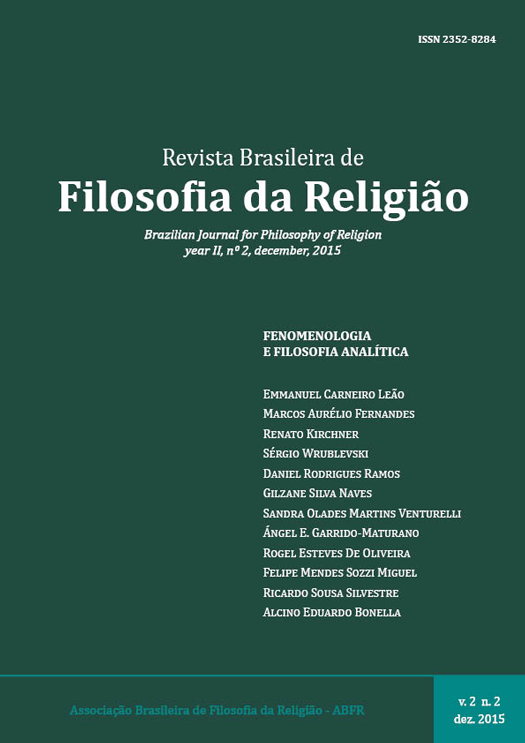On the logical formalization of Anselm’s ontological argument
DOI:
https://doi.org/10.26512/2358-82842015e17382Keywords:
Formalization in philosophy. Theist arguments. Ontological argument. Anselm’s argument. Adams.Abstract
The general theme of this paper is the issue of formalization in philosophy; in a more specific way, it deals with the issue of formalization of arguments in analytic philosophy of religion. One argument in particular ”“ Anselm’s Proslogion II ontological argument ”“ and one specific attempt to formalize it ”“ Robert Adams’ formalization found in his paper “The Logical Structure of Anselm’s Arguments”, published in The Philosophical Review in 1971 ”“ are taken as study cases. The purpose of the paper is to critically analyze Adams’ formalization with the intent to shed some light on the following questions: What are the virtues of formally analyzing arguments and the contributions, if any, of such an enterprise to the debate on Anselm’s argument? Which lessons can Adam’s work teach us about the dangers and limitations of formalization? Do these virtues and dangers teach us something about analysis of arguments in general?
Downloads
References
ADAMS, R. The Logical Structure of Anselm’s Arguments. The Philosophical Review, 1971,
:28-54.
ANSELM. Tr. M. Charlesworth. Notre Dame: University of Notre Dame Press, 1965.
CARNAP, R. Logical Foundations of Probability. Chicago: University of Chicago Press, 1950.
ENGEL, P. Formal Methods in Philosophy. In: Proceedings of the 6th European Congress of
Analytic Philosophy, (eds.) T. Czarnecki et al. London: College Publications, 2010.
ENGEL, P. Formal Methods in Philosophy: Shooting Right without Collateral Damage. In: The
Analytic Way. Proceedings of the 6th European Congress of Analytic Philosophy, (eds.) T. Czarnecki,
K. Kijania-Placek, O. Poller e J. Wolenski. London: College Publications, 2010.
GÖDEL, K. (1995) Kurt Gödel: Collected Works, vol. 3. Oxford: Oxford University Press, 1995.
HANSSON, S. Formalization in Philosophy. The Bulletin of Symbolic Logic 6: 162-175, 2000.
HORSTEN, L.; DOUVEN, I. Formal Methods in the Philosophy of Science. StudiaLogica 89:
-162, 2008.
KLIMA, Gyula (2000) Saint Anselm’s Proof: A Problem of Reference, Intentional Identity and
Mutual Understanding. In: Ghita Holmström-Hintikka (ed.), Medieval Philosophy and Modern
Times,Dordrecht: Kluwer, 2000, p. 69-87.
MATTHEWS, G. “The Ontological Argument.” In: The Blackwell Guide to the Philosophy of
Religion, (ed.) William Mann,Oxford: Blackwell Publishing, 2005, p. 81-102.
OPPENHEIMER, P. and ZALTA, E. On the Logic of the Ontological Argument. In: Philosophical
Perspectives 5: The Philosophy of Religion, (ed.) James Tomblin. Atascadero: Ridgview
Press, 1991.
PLANTINGA, A. The Nature of Necessity. Oxford: Oxford University Press, 1974.
ROWE, W. Philosophy of Religion: An Introduction. 4th edition. Belmont: Wadsworth, 2006.
SOBEL, J. Logic and Theism. New York: Cambridge University Press, 2004.

